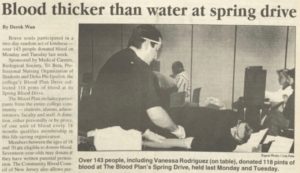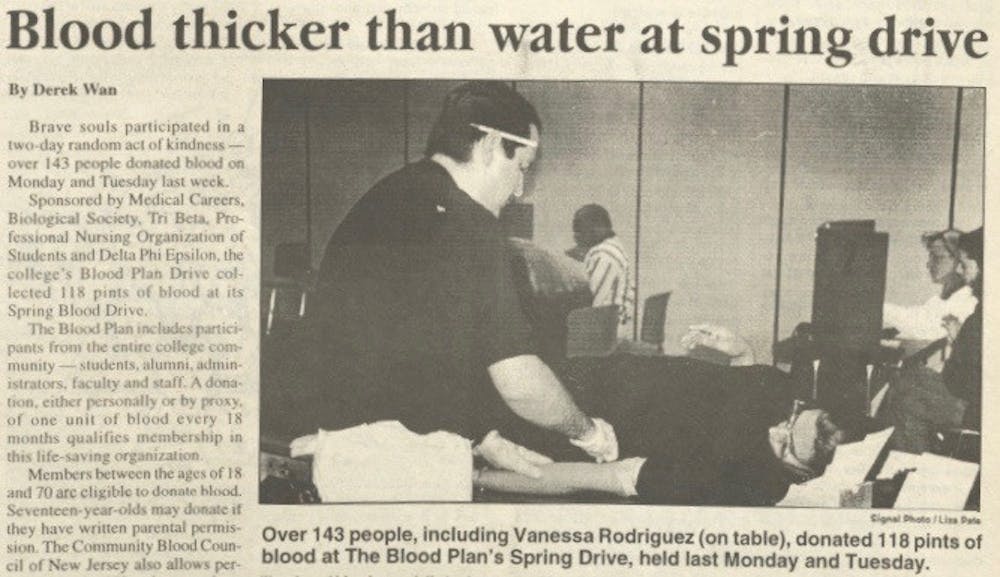By Jane Bowden
Features Editor
Between balancing school, work and extracurricular activities, students might find it difficult to volunteer their time to help their neighboring communities through clubs like Habitat for Humanity and Student United Way.

However, campus-wide blood drives serve as a low-commitment way for students and faculty to give back in just a matter of minutes.
In a Feb. 1999 issue of The Signal, a reporter wrote about a blood drive that collected 118 pints of blood from over 143 students and staff members.
Brave souls participated in a two-day random act of kindness — over 143 people donated blood on Monday and Tuesday last week.
Sponsored by Medical Careers, Biological Society, Tri Beta, Professional Nursing Organization of Students and Delta Phi Epsilon, the college's Blood Plan Drive collected 118 pints of blood at its Spring Blood Drive.
The Blood Plan includes participants from the entire college community — students, alumni, administrators, faculty and staff. A donation, either personally or by proxy, of one unit of blood every 18 months qualifies membership in this life-saving organization.
Members between the ages of 18 and 70 are eligible to donate blood. Seventeen-year-olds may donate if they have written parental permission. The Community Blood Council of New Jersey also allows persons older than 70 to donate as long as they meet Blood Center criteria and have been a regular donor.
The Blood Plan Drive has been a recurring blood drive on campus, serving the community since the '60s.
"I'm proud of the longevity," said Dr. Ray Fangboner, chair of the Blood Plan. "We've been here for a long time. This is a very critical time for donations. (Donors) contribute to another life."
"There's a lot of people who are Signal Photo / Liza Pate Over 143 people, including Vanessa Rodriguez (on table), donated 118 pints of blood at The Blood Plan's Spring Drive, held last Monday and Tuesday. four years they've been here. (The ill and need blood, especially in chemotherapy," said Cynthia Poynor, a registered nurse supervisor."People need platelet replacements, so the platelets they get with donors will help them so they don't bleed to death. Also, there are babies who need (blood). People are saving lives every day by donating blood."







